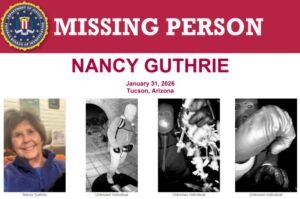
Millions of Americans who rely on federal food assistance programs may go without critical benefits in November if the government shutdown continues. Several states — including Colorado, Oklahoma, Texas, and others — have already issued warnings that November benefits will not be available unless funding is restored.
The Readovia News Desk reports that recipients in Maryland have begun receiving in-app alerts on their state benefit portals notifying them that their Food Supplement (SNAP) and WIC benefits “may not be available in November.” Those alerts, verified through user screenshots, mark one of the first direct notices to beneficiaries at the state level — signaling that the risk of interruption is now immediate, not hypothetical.
The U.S. Department of Agriculture has advised state agencies that, should the shutdown persist, there may be insufficient funds to cover full November payments for both the Supplemental Nutrition Assistance Program (SNAP) and the Special Supplemental Nutrition Program for Women, Infants, and Children (WIC). Together, these programs serve more than 45 million Americans.
Growing Impact Across States
From the Midwest to the Gulf Coast, states are bracing for an unprecedented disruption. Officials have warned that federal allocations for November cannot be guaranteed without a new funding agreement. Some states have confirmed that unless the shutdown ends soon, payments will simply not be issued.
For many low-income households, groceries and infant formula benefits are lifelines. A missed monthly deposit can mean skipped meals, postponed rent, or complete reliance on local food banks already stretched thin by demand. The combination of inflation, high grocery prices, and a lapse in federal support has created what advocates are calling a “perfect storm” of hardship.
WIC is especially vulnerable because it is not an entitlement program; once federal funds run out, state agencies have limited ability to continue disbursements. Several state offices have indicated that funding could expire within days, forcing them to suspend new enrollments or pause benefits altogether.
What Beneficiaries Should Know
- Check your state benefit app or online portal for new alerts regarding your November benefits.
- Consider stocking up now on essentials if you rely on SNAP or WIC and live in a state that has issued warnings.
- Local food banks and community organizations are preparing emergency distributions; contact your local social-services office for updates.
- Congress could fix the problem quickly if it reaches a deal, but right now, there’s no agreement in sight — so benefits remain at risk.
The Bigger Picture
This growing crisis highlights how deeply political gridlock in Washington affects day-to-day life for families nationwide. When federal programs are disrupted, states must scramble to fill the gap, often without resources to do so. Even a brief interruption in benefits can have lasting effects — from lost nutrition for children to reduced sales for small retailers in low-income communities.
As the shutdown stretches on, uncertainty remains the only constant. For millions of families, November may mark the first time in years that grocery benefits simply don’t arrive.
Readovia Continuing Coverage
The Readovia News Desk will continue to monitor benefit alerts, state updates, and federal negotiations as they develop. Readers who have received similar “not available in November” notices through their state or local benefits portals are invited to contact the Readovia newsroom with the alert information, their state, county, and the date of the alert.
























































